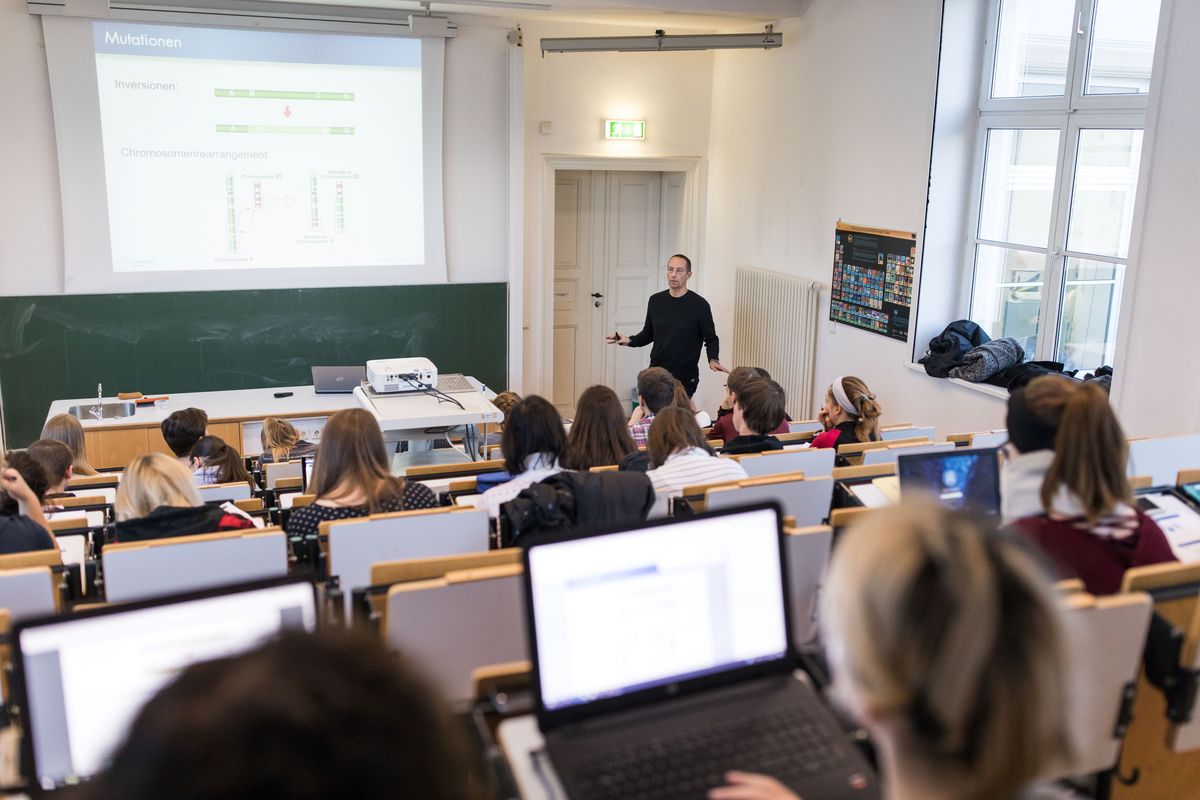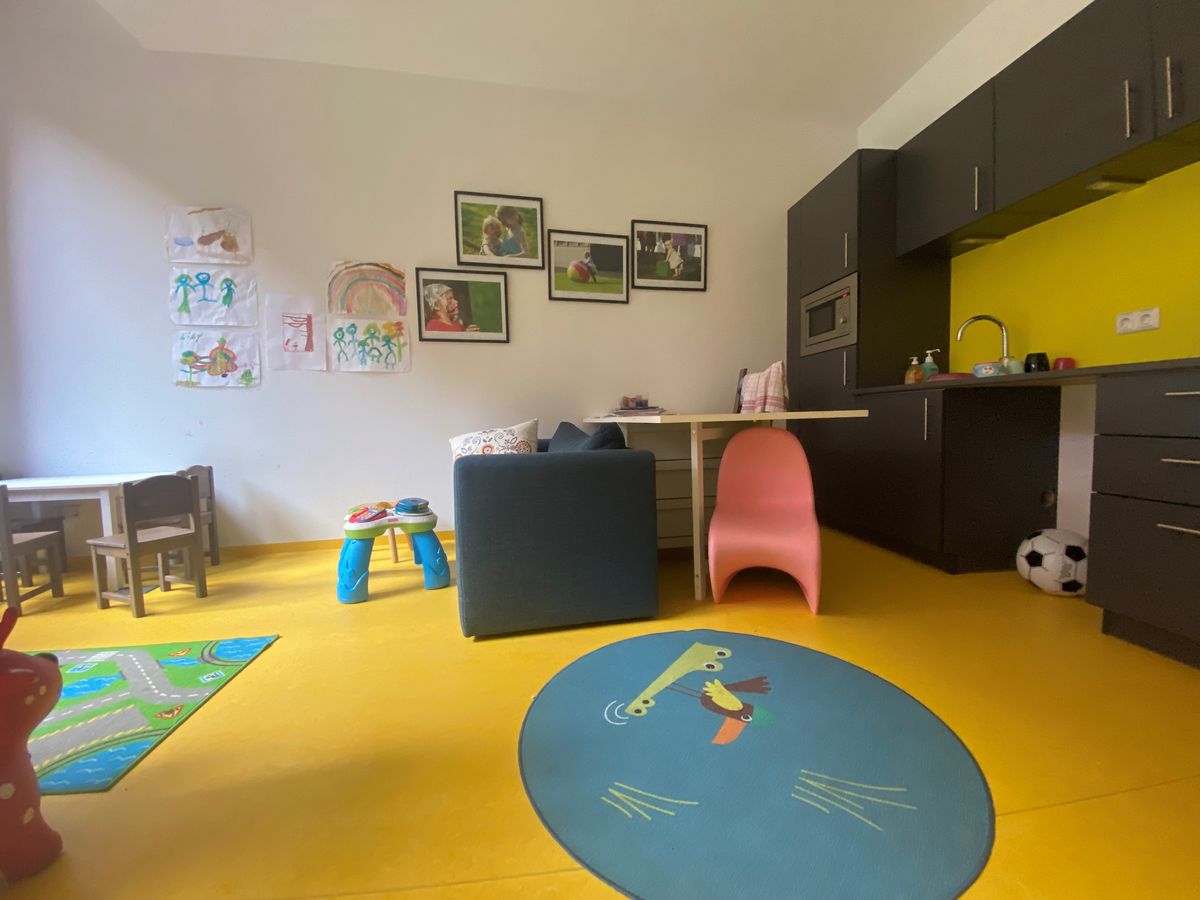ECO-N offers disciplinary and interdisciplinary graduate study programmes, PhD Thesis Advisory Committees, and opportunities for international exchange.
ECO-N will train a new generation of sustainability researchers who have excellent quantitative methodological skills in their respective disciplines – economics, meteorology, biodiversity science – and at the same time are able to analyse complex sustainability problems in an interdisciplinary manner and with a systems perspective that addresses the connectivity of sustainability concerns. In academia, policy, and practice, the need for academically distinguished professionals of this new orientation is growing significantly in the wake of the UN 2030 Agenda for Sustainable Development with its SDGs. The qualification programme will provide these academic professionals with the skills required in academic research, management of firms, international NGOs, and public authorities in the domain of sustainability and natural commons.
The programme comprises the following core elements
- Advanced Training Modules to develop methodological common pool resources, in addition to access to key skills courses and disciplinary PhD programmes;
- Exchange with all ECO-N doctoral researchers, postdocs, project leaders (PLs), external guests from further disciplines (social and political sciences, psychology, humanities) and practitioners (policy-making, public authorities, NGOs) at the ECO-N lecture series, annual retreats, and within synthesis activities.
- Interdisciplinary and international supervision and career support with thesis advisory committees (TACs), research group rotations, and visits at international peer programmes.
ECO-N subscribes to the idea that it is productive and sensible to foster specialised, disciplinary excellence in science. Each doctoral researcher in ECO-N will have their own ‘home’ discipline. The main advisor will be from that discipline, and the candidate will obtain the PhD degree from the respective faculty.
Thesis Advisory Committees
Each doctoral researcher will be supported by a Thesis Advisory Committee (TAC), consisting of the main advisor, one advisor from another discipline, and a postdoctoral researcher. In the first meeting(s), the TAC will help the doctoral researcher to formulate individual career goals, and develop a corresponding Personal Development Plan. In addition to regular advice on the project, the TAC will give regular feedback on career development, recommended research group rotations, professional skill workshops and conference visits.
International exchange
ECO-N supports doctoral and postdoctoral researchers in developing their international scientific networks. One element is that they are encouraged to participate at international scientific conferences early on. Every doctoral researcher is encouraged to present at least one of their papers per year. Doctoral researchers are encouraged to invite international experts to the ECO-N lecture series. Funding is available for research visits at foreign institutions, especially at the international peer programmes at
- the University of Exeter,
- the University of Paris, and
- the University of California in St. Barbara.
Start-up funding
ECO-N supports the transition to the next career step after PhD with a competitive programme for start-up funding. The start-up funding will be provided for six months after the successful thesis defence. Typical projects for the start-up funding phase are to finalise a job-market paper, or to prepare and submit a research proposal.
The curriculum consists of the bi-monthly ECO-N lecture series, Advanced Training Modules and offers of the disciplinary doctoral programmes.
ECO-N Lecture Series
ECO-N participating researchers and external guests will present in a lunch-time seminar twice a month. The ECO-N lecture series is led by ECO-N doctoral researchers. External speakers include leading researchers from all over the world. Speakers will also bring in perspectives of further scientific disciplines such as environmental ethics, environmental law, sociology, and psychology, as well as the science-policy interface and sustainability practice, for example from international organisations, environmental NGOs, and companies.
Advanced Training Modules
Advanced Training Modules are three-day block courses, offered twice per year, on methods and topics particularly relevant. ECO-N doctoral researchers apply and train “methodical common pool resources” for example in Statistics and empirical identification strategies, Empirical methods for valuing natural commons, Detection and attribution, Dynamic models in biodiversity, meteorology, and economics, or Multifunctionality.
Disciplinary PhD Programmes
The doctoral researchers receive disciplinary training in their ‘home’ faculty’s doctoral programmes. Economics doctoral researchers have access to the Central German Doctoral Programme in Economics (CGDE), with a full-fledged programme in dedicated PhD courses. Doctoral researchers in atmospheric and climate sciences have access to the Leipzig Graduate School on Clouds, Aerosols and Radiation. Doctoral researchers in life sciences have access to yDiv, the graduate school of the German Centre for Integrative Biodiversity Research (iDiv).
Postdoctoral researchers are integrated in ECO-N through the postdoc programme. This includes two synthesis postdocs funded by ECO-N and associated postdocs. Postdocs contribute to teaching, co-supervise PhD projects and have access to ECO-N resources (travel money, inviting guests to the lecture series, participating in synthesis working groups and contributing to their outputs). In addition, ECO-N postdocs bring in expertise on further natural commons such as biodiverse grasslands, freshwater resources, and marine fisheries. Their participation in ECO-N is guided by a mentoring team of two ECO-N project leaders, and based on a Personal Development Plan developed by the postdoc and the mentors.
- ECO-N strives for diversity and equity in research, in particular for a substantial share of foreign early-career researchers and an equal gender balance.
- ECO-N female early career researchers have access to the mentoring and coaching programme t.e.a.m. offered by Leipzig University.
- ECO-N offers a family-friendly working environment and facilitates to combine family and academic career by the family service, family-friendly infrastructure, e.g. nursing rooms, changing tables at the campus day-care facilities for children, child-care services during workshops and events as well as day care services offered by the Graduate Academy Leipzig, and flexible possibilities and infrastructure to work from home.
- The Natural Commons Research Medal is awarded twice a cohort, at least once to a female doctoral researcher, for an outstanding publication on an ECO-N topic. The medal comes with a prize money of 5,000 Euros, which can be flexibly used for research.

